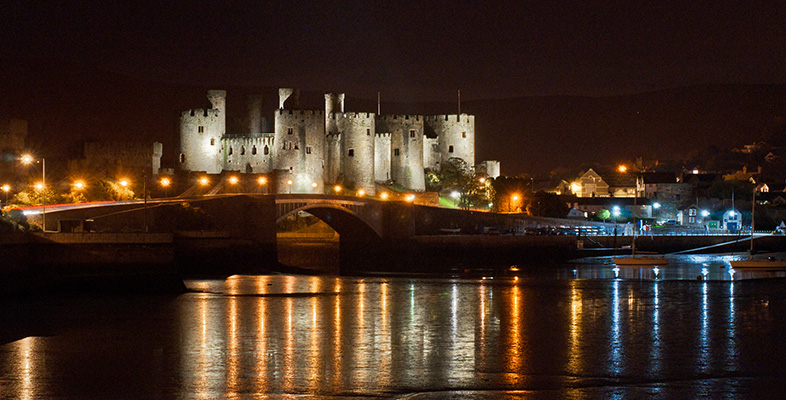7.2 Labour and devolution
7.2.1 The Labour tradition and devolution
The arrival of devolution in 1999 opened a new chapter in the history of Welsh Labour. Contrary to the fears of many nationalists, Labour has not ended up dominating the Welsh Assembly. The Assembly has 60 seats, some of which are allocated on a traditional ‘first past the post’ constituency basis, and others on a regional, ‘proportional representation’ basis. In the first three elections for the Welsh Assembly in 1999, 2003, 2007 and 2011 Labour won 27, 30, 24 and 30 seats respectively. Labour has thus failed, to date, to establish an overall majority in Cardiff. One of the defining features of the Welsh Assembly has been the advent of coalition government. In 2000 Labour secured control of the Assembly through coalition with the Liberal Democrats and, in 2007, a most unlikely (given the antipathy between the parties for most of the previous century) coalition with Plaid Cymru. From 2011 it has governed with no overall majority. As results for the first three Assembly elections demonstrate, other ‘radical’ parties have also performed well and, for the first time in over a century, the Conservative Party is responding to the challenges of contemporary Wales with a voice and a mandate which has a distinctively Welsh feel and with an agenda that is not unsympathetic to some ‘radical’ concerns (especially the need to preserve, and even extend, Welsh self-government).
It is clear that devolution and coalition government have posed challenges for Labour. Among the positives for Labour (and, indeed, the other parties) in the first ten years of devolution has been the attempt to address the gender imbalance in Welsh politics. As a result of a policy that some call ‘positive discrimination’, Labour selection processes included all-women shortlists in many constituencies prior to the 1999 Assembly election. Partly as a consequence of this, in the first Welsh Assembly, 46 per cent of the seats were held by women; in 2003, this rose to 50 per cent. Before the 2007 election, the Welsh Assembly had 29 male Assembly Members (AMs) and 31 female. In 2003, the Welsh cabinet also had a female majority (5 out of 9 ministers). In May 2007, 47 per cent of AMs are women. In June 2014, one third of the Cabinet were women and 44 per cent of AMs – so there has been a decline in the representation of women in recent years. However, at Westminster 19.5 per cent of MPs are women and 20 per cent of Welsh MPs are women.
Another benefit has been the continuance of a Welsh Labour tradition in attempts to construct a Labour agenda that is distinctively Welsh. When I think back to Morgan’s analogy of ‘red dragons’ and ‘red flags’ (the division of Labour Wales into de-centralist and centralist camps), I think it’s safe to say that the spirit of both has been awakened in Cardiff Bay. In the first couple of years of devolution, Welsh Labour struggled to break free from the shackles of the party’s London leaders. This was highlighted by the controversy surrounding Alun Michael’s term as First Minister between 1999 and 2001, when Michael was seen by media commentators, the party’s opponents and even some Welsh Labour members like Paul Flynn as Tony Blair’s ‘groupie’, or ‘poodle’ in Cardiff (Flynn, 1999, p. 44). Michael was also unpopular among many prodevolutionists because he had a record of being, at best, lukewarm on the question of devolution. However, after Michael’s resignation in 2001, his successor, Rhodri Morgan, attempted to mould a Labour agenda for Wales that is different to that in London. The whole point of devolution was that Wales could, if it wanted, develop policies that were different to those in other parts of the UK. The need for this approach was famously summed up by Morgan in December 2002 in what has since become known as the ‘clear red water’ speech. This highlighted a desire for Wales not only to be different, but also for Labour to draw on strands of its heritage and tradition. The extract below is an excerpt on the subject from a speech delivered in Cardiff in March 2003.
Extract 9
The key point is that we organise ourselves and the values that we hold are shaped by this experience of living in relatively small settlements and medium sized villages, towns, valley agglomerates and cities. The consumerist approach to choice in public services that stresses differentiation may fit best the practicalities and the experience of those metropolitan settlements of a million or several million people that are a feature of counties that are urbanised in a different way to Wales. As an Assembly Government, we have given higher priority to the provision of high quality, community based, comprehensive secondary schools than we have to the development of a choice of specialist schools. This does not mean we area against choice and diversity ... it seems to me that our values and our geography lead us to stress the community basis of our schools ... involving parents, families and community groups in the life of the schools.
Activity 22
Consider and note other areas of policy where the difference between English needs and values may be different to traditional Labour and Welsh values. For example, you could consider how policies on tourism in the rest of the UK may not always be conducive to Welsh needs.
So we have red dragons, red flags, and now red water as a means of defining what the Labour tradition is all about. We could actually portray Rhodri Morgan as a red dragon, someone who comes from the same sort of background as James Griffiths, a Welsh speaker, with sympathies for the culture and language of Wales, but also with clear socialist beliefs and tendencies and an unequivocal supporter of Welsh self-government.
